
March 04, 2025
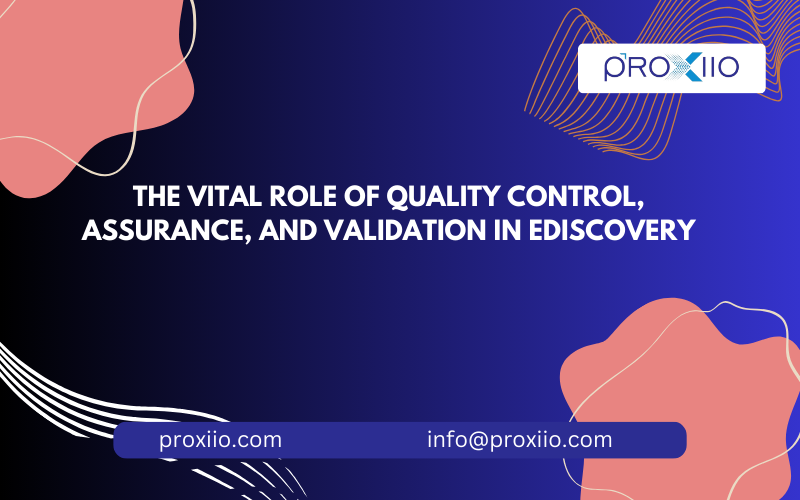
The Vital Role of Quality Control, Assurance,
and Validation in eDiscovery
eDiscovery involves collecting, reviewing, and
analyzing digital data for legal purposes, a cornerstone of modern legal
practice. As legal cases increasingly rely on electronic evidence, ensuring the
integrity, accuracy, and reliability of that evidence is critical, high
standards of quality control (QC), quality assurance (QA), and validation are
essential to preserving the credibility of eDiscovery processes and ensuring
that the evidence stands up in court. These practices safeguard legal outcomes
and protect the interests of clients and the legal teams' reputations.
1. Quality
Control (QC)
Quality Control in eDiscovery refers to the
systematic checks and processes designed to ensure that the collected data
meets predefined standards of accuracy and integrity. QC measures are integral
throughout the eDiscovery process to detect and correct errors before the data
is used in legal proceedings. Key QC practices include:
Regular QC checks ensure that no important
data is corrupted, missing, or altered during the process, which is crucial for
maintaining the integrity of the evidence.
2. Quality
Assurance (QA)
Quality Assurance, unlike QC, is a proactive,
ongoing process that focuses on building effective systems, protocols, and
practices to improve the eDiscovery process continually. QA involves creating a
framework that enhances efficiency and reduces errors in data handling. This
includes:
A solid QA approach ensures that eDiscovery
workflows are continuously optimized, reducing errors and increasing the
reliability and effectiveness of legal support. By mitigating risks early, QA
also helps avoid costly mistakes and improves the overall quality of evidence
management.
3.
Validation
Validation in eDiscovery involves confirming
that the tools, methodologies, and processes used for data collection,
processing, and analysis are functioning correctly and generating legally
defensible results. Validation ensures that the entire eDiscovery process is
legally sound and that the data can stand up to scrutiny in court. Essential
aspects of validation include:
Validation builds confidence among legal teams
and clients, ensuring that the evidence is accurate, legally defensible, and
free from manipulation. It is a crucial step in meeting regulatory requirements
and safeguarding the integrity of the legal process.
Proxiio’s
Approach to eDiscovery Quality Management
At Proxiio, we integrate quality control,
quality assurance, and validation seamlessly into our eDiscovery workflows to
maintain the integrity of the evidence throughout the process. Our approach
involves:
By combining QC, QA, and validation, we help
clients avoid costly mistakes, safeguard against legal challenges, and enhance
the reliability of the evidence. This approach minimizes the risk of errors or
disputes over evidence, strengthens relationships with clients, and fosters
transparent communication throughout the eDiscovery lifecycle.
Conclusion
The roles
of quality control, quality assurance, and validation in eDiscovery are
indispensable for ensuring that electronic evidence is accurate, trustworthy,
and legally defensible. By implementing these practices, legal teams can be
confident that the data used in their cases will lead to more reliable,
positive outcomes. At Proxiio, our dedication to the highest standards of QC,
QA, and validation not only reduces the risk of errors and disputes but also
guarantees that clients receive the most accurate and reliable legal support,
reinforcing our commitment to excellence in the eDiscovery process.

March 04, 2025
The Vital Role of Quality Control, Assurance, and Validation in eDiscoveryeDiscovery involves collecting, reviewing, and analyzing digital data for legal purposes, a cornerstone of modern legal practice. As legal cases increasingly rely on electronic evidence, ensuring the integrity, accuracy, and ...
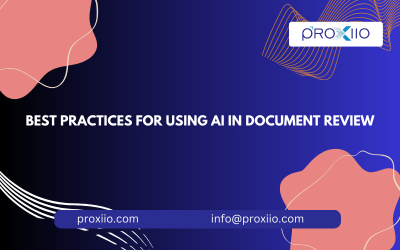
March 04, 2025
IntroductionArtificial Intelligence (AI) is revolutionizing the legal industry, particularly in document review. Byleveraging machine learning, natural language processing (NLP), and optical character recognition(OCR), AI tools streamline the analysis, sorting, and extraction of information in legal documents.These innovations not only save ...
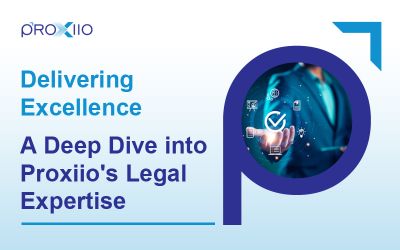
April 15, 2024
In today’s complex global legal landscape, having a dedicated and experienced team behind you can make a difference in the results your organization achieves. At Proxiio, we take pride in our exceptional legal team, who bring a wealth of qualifications, ...
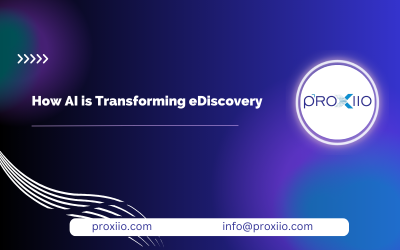
March 04, 2025
Problem Statement: Challenges in Traditional eDiscoveryElectronic discovery, or eDiscovery is the process of identifying, collecting, and analyzing digital evidence that can be used in litigation or criminal proceedings. eDiscovery plays a critical role in litigation and criminal investigations by identifying, ...
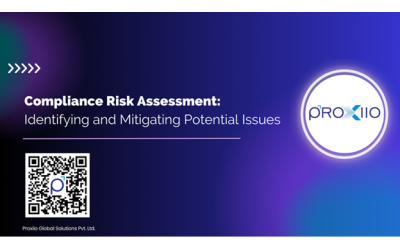
May 21, 2025
In today’s rapidly evolving regulatory environment, compliance is no longer a static checklist—it’s a dynamic, ongoing process. A compliance risk assessment serves as a cornerstone for building a strong compliance program, helping organizations proactively identify, evaluate, and mitigate legal and ...
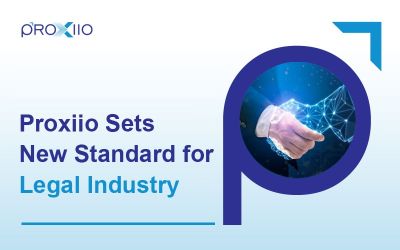
November 22, 2024
Proxiio launched its services in the U.S. market on March 12th, 2024, with the aim of disrupting the alternative legal solution provider space. The company is led by CEO Deepak Mishra, a trusted leader with 30 years of global experience ...